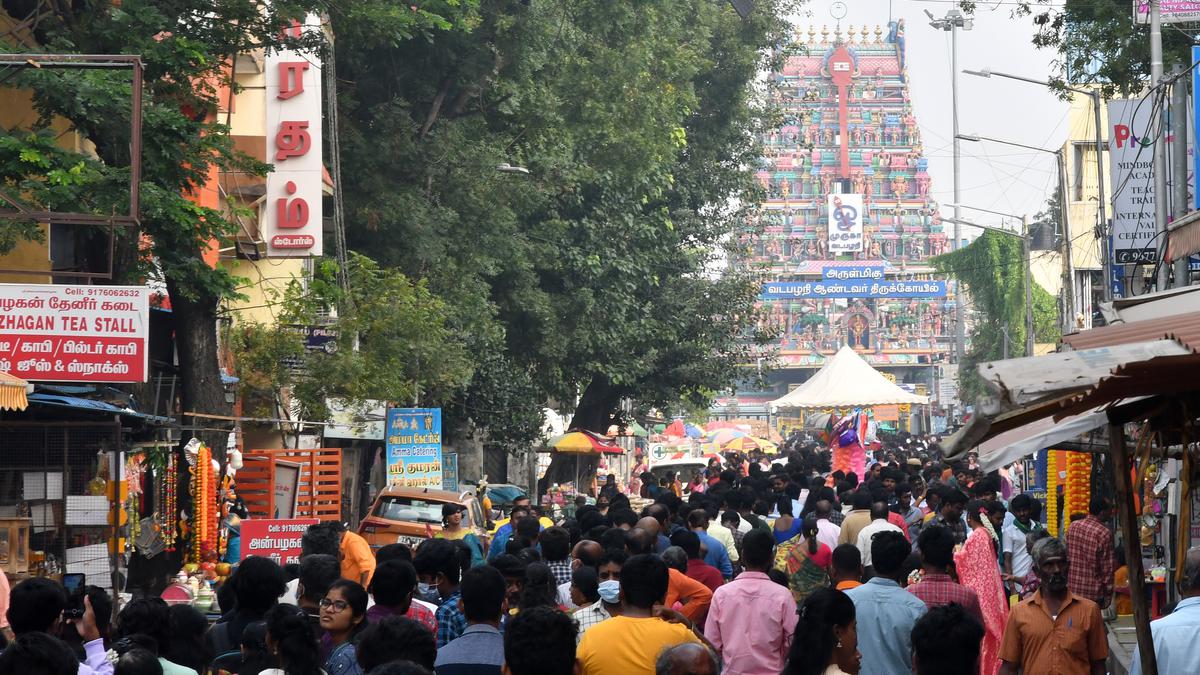News Highlight
The case against state control of Hindu temples: nothing justifies a state official dictating how worship is conducted to a religious functionary.
Key Takeaway
- State management of temples is often justified to ensure temple access for worshippers and archakas (priests).
- Regulating secular activities associated with religious practice can be traced to Article 25(2)(a) of the Constitution.
- In addition, this Article purportedly justifies temple control legislation.
- Regulating temporal aspects of religious practice is distinct from providing access to worship.
- This is why there are different laws for temple control and temple entry.
- Furthermore, they co-exist; one does not depend on the other.
State Control of Hindu temples
- Background
- Firstly, he problem of hierarchical division in Hindu society is prevalent.
- Communities have consistently called for the state’s control over temples loosened.
- Additionally, communities are requesting the right to representation in matters relating to temple management.
- Now the issue is who would be in charge of the temples if the government relinquishes responsibility for their management.
- The Hindu Religious and Charitable Endowments (HR&CE) Act of 1959 governs the management of Hindu temples and religious institutions.
- Moreover, the hereditary priesthood was abolished in 1971 thanks to an amendment to HR&CE Act Section 55.
Why is it necessary to replace government authority over temples?
- States’ jurisdiction of temples is a more controversial subject as a result of the:
- Firstly, highly inefficient use of resources
- Rise in Corruption
- Temple antiquities are lost or destroyed as a result of mismanagement.
- Furthermore, against the secularist principle.
Arguments by protestors in favour of delinking
- Firstly, government intervention goes against India’s history of secularism and democracy.
- Intervention jeopardises their right to exercise their faith by Articles 25 and 26 of the constitution.
- In addition, the right to freely profess, practise, and spread one’s religion is guaranteed by Article 25.
- Article 26 protects group rights. It grants to every “religious denomination” the right:
- To establish institutions;
- To manage its affairs in matters of religion;
- To own and acquire property; and
- Administer that property by law
- The degree of control varies between religions.
- They contend that other religions, such as Islam and Christianity, are favoured.
- Comparison with the Waqf Act to legitimise the control over Hindu religious endowments is misleading as:
- Waqf Act explicitly states that houses of worship like mosques are not included in its scope and only relate to charity.
- It also supports the claim that religious institutions shouldn’t be subject to government regulation.
Arguments against Delinking
- No credible successor
- Outside of the state, no organisation or group has the power to rein in the destructive behaviour that surrounds religion.
- Strengthening Evil practises
- Delinking might support dominating communities’ interests and reinforce society’s pernicious hierarchical division.
- Indian Concept of Secularism
- Unlike the western model, which advocates complete isolation, the constituent assembly of India established a concept based on principled distance.
- It enables intervention to create a society that is free and egalitarian.
- Judicial Backing
- The supreme court affirmed the 1951 Act in the Shirur Mutt Lawsuit (1954) case.
- According to the court, the act was in line with the state’s authority granted under Articles 25 and 26.
- Laws for other religions
- Other religions have their laws.
- In addition, the severity of the circumstance determines the level of intervention.
Way Forward
- Firstly, it has been asserted that transferring control of the temples to the local populace will reinforce class distinctions.
- Additionally, communities, though, seek to exert authority.
- They are requesting participation in the administration of the house of worship.
- It is made feasible by establishing boards with priests, religious leaders, and accountable members from the dharmik sampradaya as representatives.
- Furthermore, similar measures for transferring religious organisations to society can be found in the colonial law known as the Religious Endowments Act (Act XX of 1863).
Pic Courtesy: The Hindu
Content Source: The Hindu



